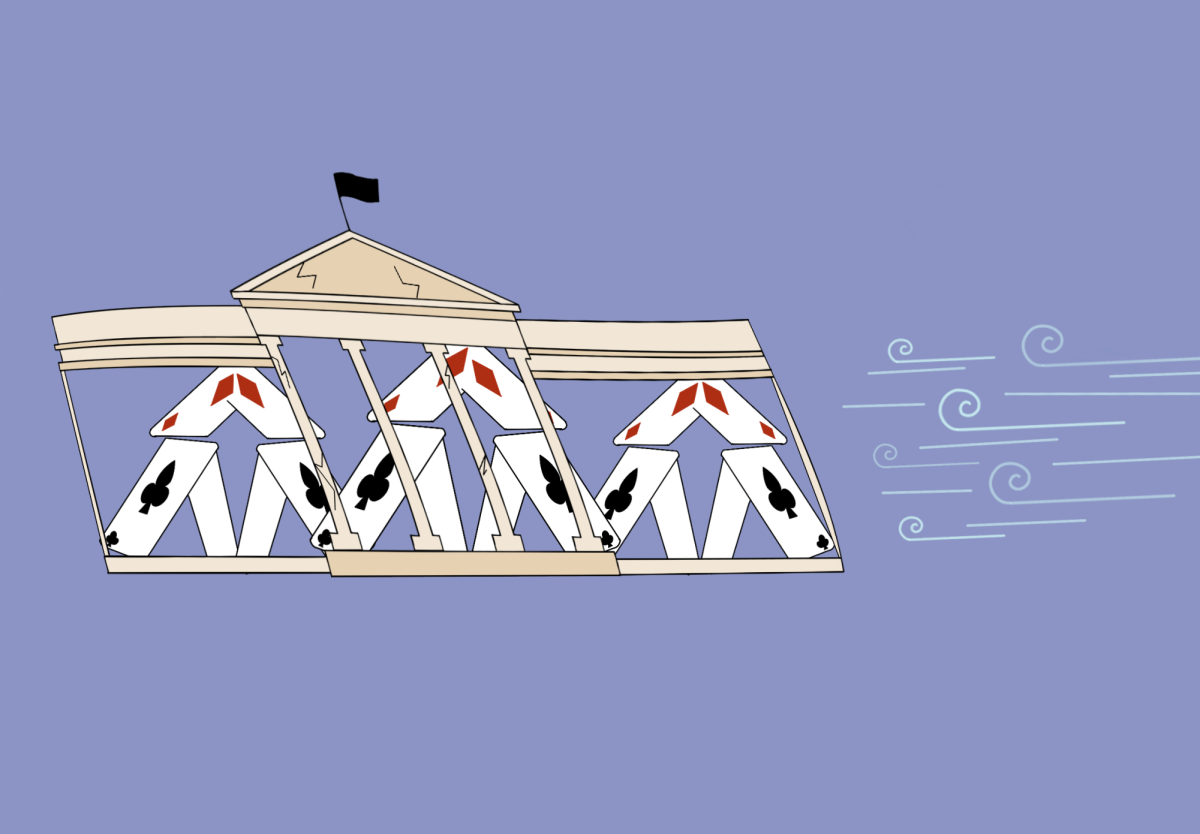Guatemala is a big spender when it comes to aid, Togo is bossy but nice while China is inexplicably mean to Yemen, and South America just wants to have fun.
At the recent Georgia State University Model United Nations conference, students attempted to find solutions to real global problems, but they occasionally saw some unrealistic behavior from other delegates.
“The worst part is countries not acting like their actual country, definitely,” sophomore Molly Gray said. “It’s just really sad when Guatemala thinks that they are a developed country.”
Prior to a conference, each school is assigned at least one country to represent. Grady’s team represented the Republic of Yemen. Months before the conference, students chose committees, such as the U.N. Development Program, the General Assembly Plenary and the U.N. High Commission on Refugees. They then wrote position papers on one of two topics.
Gray and sophomore Anna Braxton were among eight Grady students who participated in the conference held on Nov. 7-8. This was one of four events the team will compete in this school year. The team enjoyed considerable success at the competition: Gray and Braxton received a Distinguished Position Paper award as well as Distinguished Delegate awards; sophomores Carter Guensler and Robert Brown received Honorable Mentions for their performance in the General Assembly.
Sophomore Tatyana Sampson said last year’s team had about five people. This year, as many as 15 attend weekly practices and work toward competitions. Susan Salvesen, who has been the faculty adviser for Model U.N. for four years, said last year’s members pushed their friends to join.
Guensler said he joined Model U.N. last year at the urging of Salvesen and some of his friends.
“I was sure that Model U.N. would basically consist of nerdy guys arguing about politics while I would sit uncomfortably at a desk in the back,” he said. “Instead, I discovered it to be this amazing conference where everyone works together to solve problems facing the world today.”
At the conference, delegates discussed an array of issues within their committees, with the goal of drafting resolutions to address global challenges. Competitors attended the conference from 8 a.m. to 4 p.m. on Thursday, Nov. 7, and Friday, Nov. 8, on Georgia State’s campus.
Most of the structured debate occurs during moderated caucuses, when delegates follow strict procedures and speak in order to share their country’s stance. Delegates are judged on their participation in the proceedings, their adherence to procedural rules and how well they remain in “character” as their country.
During unmoderated caucuses, delegates interact freely to form alliances, discuss topics and draft resolutions. Gray said delegates did not always behave as she thought they would. She and Braxton reached out to China since China sponsors numerous development projects in Yemen. China, however, ignored Yemen when drafting papers.
Braxton noted Togo took on a surprisingly significant leadership role.
“They like rallied people together and said things like, “‘As Togoans, we believe we need to come together,’” Braxton said.
The UNDP passed three resolutions, two of which were sponsored by Yemen and one of which had nearly universal support. Some delegates, however, did not take active roles in the proceedings. Gray said a group of girls representing various South American countries never addressed the conference during a moderated caucus. They did, however, send a number of notes to other delegates, a practice which typically allows delegates to learn the views of other countries without breaking into an unmoderated caucus.
“There was one that said ‘Roses are red violets are blue, don’t worry, Jack, it’s our first time, too. Love, the South American countries in the back,’’’ Gray said. “I felt very embarrassed for them.”
Guensler, who has participated in three conferences, said most notes are professional, but has seen notes with Model U.N. pickup lines.
“For example, ‘I’d Czech your Republic’ or ‘If you were a gavel I’d pound you all day,’” he said.
After its success at the Georgia State conference, the team is looking to expand, improve and compete at larger tournaments. Gray said the team next year hopes to attend a conference at the University of North Carolina-Chapel Hill as well as the National High School Model U.N. Conference in New York City, which takes place at the U.N. Headquarters. Salvesen said fundraising and finding enough practice time before such tournaments may be difficult.
In the immediate future the team is preparing for a Model Arab League conference at the Marist School in February and another Model U.N. conference at Kennesaw State University in March. Sampson said she is excited about the upcoming competitions because she loves the mental stimulation they provide.
“You’re talking a lot, you’re writing a lot and you’re just thinking constantly for hours straight,” Sampson said.






